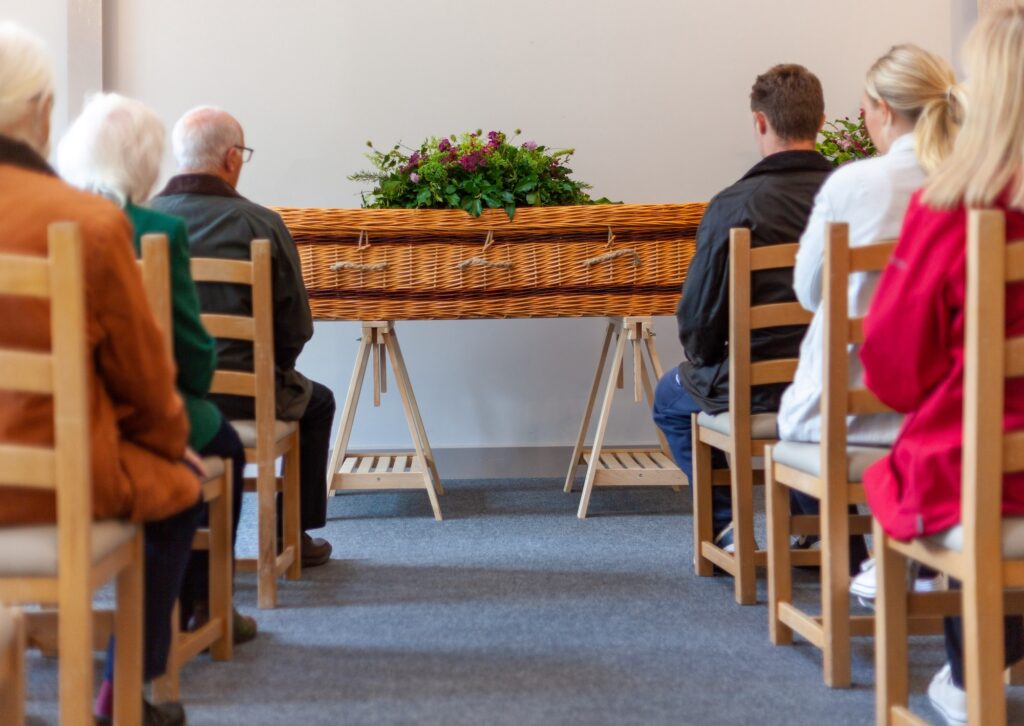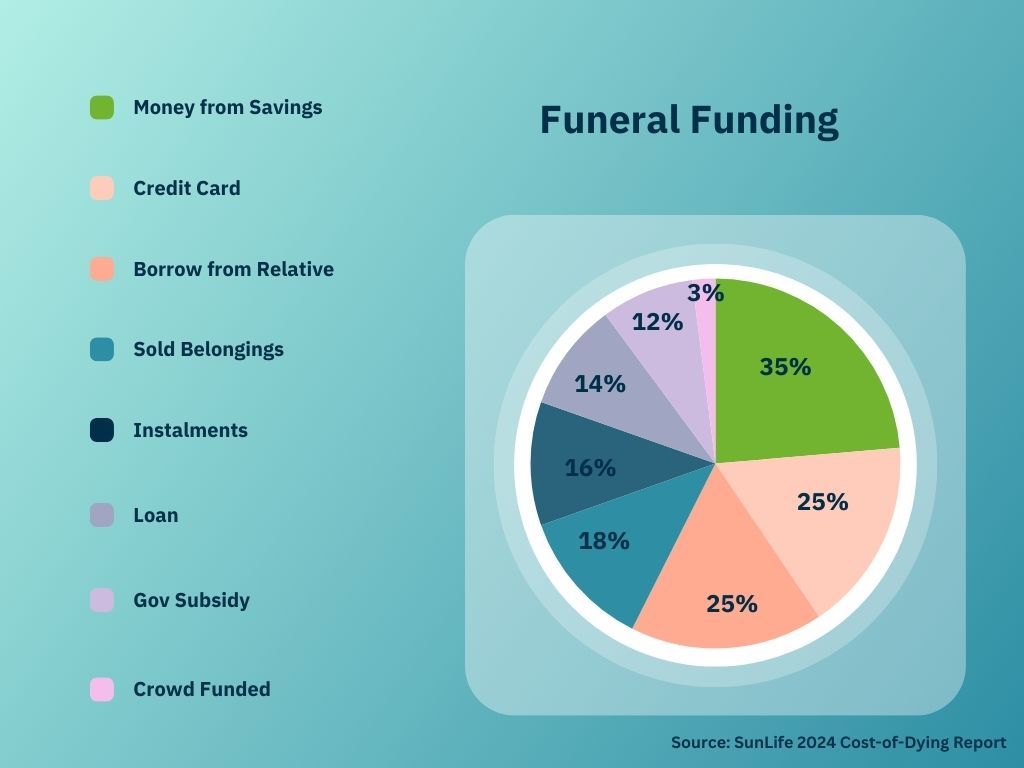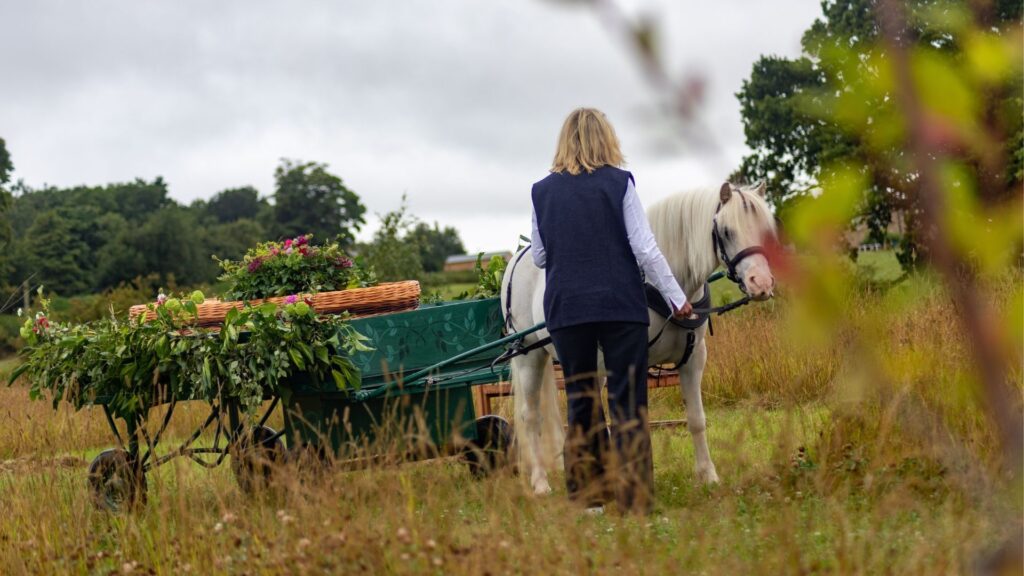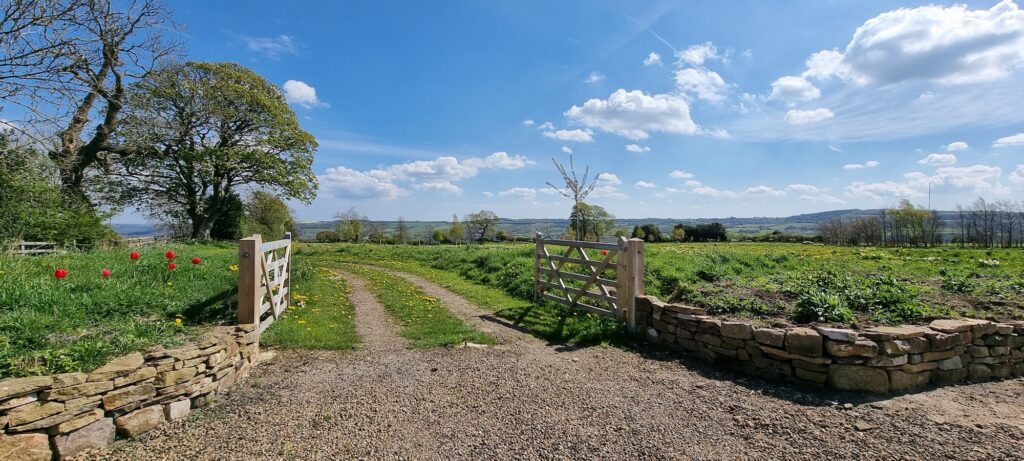
None of us wish to think about our loved ones dying, or indeed face our own mortality. Yet, it was American statesman Benjamin Franklin who said: “In this world nothing can be said to be certain, except death and taxes.”
In fact, The Bible itself reminds us that we will all ultimately return to the earth from which we came — ‘ashes to ashes, dust to dust’ — as paraphrased by pop star, David Bowie.
When Bowie’s own life ended, he opted for a direct cremation with his body taken straight to the crematorium. No ceremony, no funeral service, no fuss.
Less expensive too and especially at a time when the cost-of-dying is rising faster than people’s incomes.
Reverend Canon David Glover of Hexham Abbey in Northumberland said: “Funeral costs have always been an issue. We should absolutely be talking about dying when we are living.”
However, he is cut from a different cloth when it comes to the issue of direct funerals. “Straight to the crem is a disaster in my vie,” he added. “I am totally opposed to them whether they are religious or not.
“Direct funerals don’t enable a family to see a coffin go to the ground or a curtain closing in a crematorium. That moment is psychologically of huge benefit to those who need to let go of the person who has died. That’s what gets lost with a direct funeral. No opportunity to mourn and grieve with the body. There is no moment of closure.”
But Rev Glover understands why some may have no choice when it comes down to cost.
The North East is one of three regions where the price of a ‘basic funeral’ increased above general inflation this year, according to SunLife’s 20th edition of their Annual Cost-of-Dying Report.
After surveying 1,500 families and 100 funeral directors across the UK, SunLife’s 2024 findings are a wake-up call to the funeral industry with the cost of a ‘basic funeral’ rising by 4.7% in a year to £4,141 and the total cost as high as £9,658. Aside from the funeral, the average cost of professional fees was £2,749 with ‘send-off’ fees averaging £2,768.
When SunLife created their first Cost-Of-Dying Report in 2004, a basic funeral cost £1,835 — that’s a 126% rise over 20 years and compares with the 72% increase in consumer price inflation over the same period.

Credit: Go As You Please funerals
The Competition and Markets Authority (CMA) concluded in their Funerals Market Investigation Report of 2020 that a ‘significant proportion’ of funeral directors were overcharging the bereaved. A lack of regulation in the funeral industry has led to a lack of transparency but the CMA’s Funeral Market Investigation Order of 2021 now requires funeral directors to display standardised price lists, including online.
Adam Land, Senior Director of Remedies at the CMA, said: “The CMA put these rules in place to ensure bereaved families can trust the funeral service they buy is the one that best meets their needs. We are now ramping up enforcement action to ensure that the minority of funeral providers who are breaking the rules, by not being open with bereaved families, will face the consequences.”
The National Association of Funeral Directors (NAFD) argue the average funeral cost is ‘not nearly as expensive as it could be’ and that funeral directors ‘continue to keep bereaved customers at the forefront of their minds’.
Rev Glover reminds us that the funeral industry is big business but one that is also fighting a cost-of-living crisis and still recovering from pandemic loss of income.
“Funeral directors are a business with costs, so I think what is important to avoid is a sense of ‘isn’t it disgraceful that people are making money out of dying,” explained Rev Glover. “I think that would be a ludicrous way to think. It is a service that is being offered. The disposal of a body costs money and people want to do it with dignity.
“More people died during Covid but funeral directors really struggled. The extra costs such as limousines and flowers were no longer required but that is where the funeral directors make their profits which, in turn, pay their salaries.”

Down To Earth run the only UK-wide funeral costs and guidance service and are part of the anti-poverty and social justice charity, Quaker Social Action (QSA). They want to create a society where everyone has access to a meaningful and affordable funeral without getting into crippling debt. They believe this is a basic human right.
For many, funeral costs are unaffordable and can lead to financial hardship. Down To Earth have asked the Work and Pensions Select Committee to lead an inquiry into funeral and bereavement poverty because they say the Government’s financial support is inadequate and inaccessible for many.
For the first time in 20 years, the SunLife report asked respondents about the effects of funeral cost burdens on their mental and physical health after Down To Earth’s co-manager, Lindesay Mace, insisted such questions were included.
The findings backed up what Down To Earth have been saying for the past decade and found 76% said funeral finance struggles impacted their mental health with 67% impacted physically.
Lindesay said: “Unjustifiable price increases continue to have a devastating impact on the lives of thousands of bereaved families across the UK who are unable to grieve properly because they cannot afford a funeral.
“We believe to truly address funeral poverty the Government must take action. They are legally bound to protect people’s right to health, but they are failing bereaved people at their time of need. On average, government funeral payments across the UK cover less than 50% of the cost of a basic funeral and must be increased.”

Credit: Belsay Woodland Burials
As families find their finances stretched to the max, many are looking for the cheapest option when it comes to a funeral. Consequently, there has been an increase in public health funerals and direct cremations. The no-frills funerals also allow time for family to organise a lasting memorial later without feeling rushed to do so.
Go As You Please funeral directors in Cramlington offer small, intimate services. Operations Manager, Scott Purvis, said: “A funeral doesn’t have to cost over the odds — a simple cremation can be just right and there are no pushing sales or ‘hidden costs’.
“Covid changed the mindset of a lot of people. The pandemic made direct cremations and burials socially acceptable. Before there was always a guilt and social expectation to have a funeral so you could ‘show the world you cared’ for the person who passed away. Now, people are interested in the no fuss element.
“We often deal with bereaved families in financial difficulty. You never really know what you’re going to be dealing with. We always understand their situation and never say no when they have no money. We always advise and offer options.
“We have the lodge at Seven Penny Meadow near Medomsley up at Consett in County Durham. This reduces the cost as no transport is needed from a church and keeps the funeral service in one place. The woodland area is a tranquil and peaceful place to visit loved ones.”
Scott stresses we must talk about the taboo subject of death and encourages everyone to take out a pre-paid funeral plan.
“Talking about death can be a way to express your fears and emotions,” he explained. “With a pre-paid plan, you are securing today’s prices which, with inflation, should save you money in the future. Ultimately, this eases the financial burden at a difficult time. Planning helps the family cope, knowing what their loved one really wanted, and the plan holder has peace of mind knowing their wishes will be followed after they pass. Being prepared makes it that bit easier on the family when the inevitable happens.”
In contrast, Belsay Woodland Burials in Northumberland said they have not noticed an increase in families asking for help with funeral costs. Their spokesperson said: “We deal with a lot of families who come from more deprived areas around Newcastle and we work with those families to arrange a burial that is as inexpensive as possible.
“That said, we have noticed a small increase in people opting for direct cremations. We also have quite a few customers coming to us wanting to plan for their own passing and not wanting family to be worried about the cost.”
The Financial Conduct Authority have been regulating pre-paid funeral plans since 2022 which has led to a ban on cold calling, a ban on commission payments to funeral directors and a requirement for the plan to deliver when needed, unless the policy holder dies within two years of taking out the plan. Payment for the plan is also protected under the Financial Services Compensation Scheme (FSCS) in case the provider fails.

Down To Earth would also like the church and its clergy to sign up for the Fair Funerals Pledge and address the fact that buying a funeral can be really expensive and confusing. But Rev Glover explained the business of dying is ‘complex’.
“The funeral fees of the Church of England are set by Parliament and there has always been provision in the church for real hardship,” he added. “At two points in your life you pay towards the existence of the church — weddings and funerals. That is a fact. The fee contributes towards a rector’s salary and the cost of the church. That is why fees emerged historically.
“I think people’s perceptions of what is required at a funeral have changed. Direct cremations are part of a growing trend over the past 10 years or so. Around 30-40 years ago, many would have a religious funeral but nowadays many don’t.”
Rev Glover is trying to encourage people to talk about dying and there is a local group who meet up to do so called ‘Grave Talk’.
“The church is trying to challenge people’s fears when it comes to talking about dying,” he said. “A lot of people are afraid of death. Death is an unknown so people are a little bit fearful. It’s important to talk about dying because we all do. I understand people don’t like to think of their loved one dying so they don’t want to talk about it. But for a lot of people, it’s a great comfort to know their wishes will be carried out when they die. To talk to your family about your wishes is a sensible thing to do.
“I also think it is important for as many people as possible to see the coffin. Death is real. Death is tough. It’s not an easy business. Losing somebody is one of the hardest things we ever go through in life. Seeing the coffin when we have to say goodbye can be painful but it can help. It helps people to move to the next stage of grief.
“It’s about a family saying goodbye but there is a belief in Christianity of life beyond death. It is about commending the person’s spirit or soul into God’s eternal care. It’s really important to mark the rite of passage. To say a prayer that affects your immortal soul. There is something beyond this life and into another realm. And that is what a funeral is about. The release of the soul into God’s care is part of the funeral service.”

An amateur football team from West Auckland won the first World Cup in 1909. They won it again in 1911, beating Juventus 6-1











